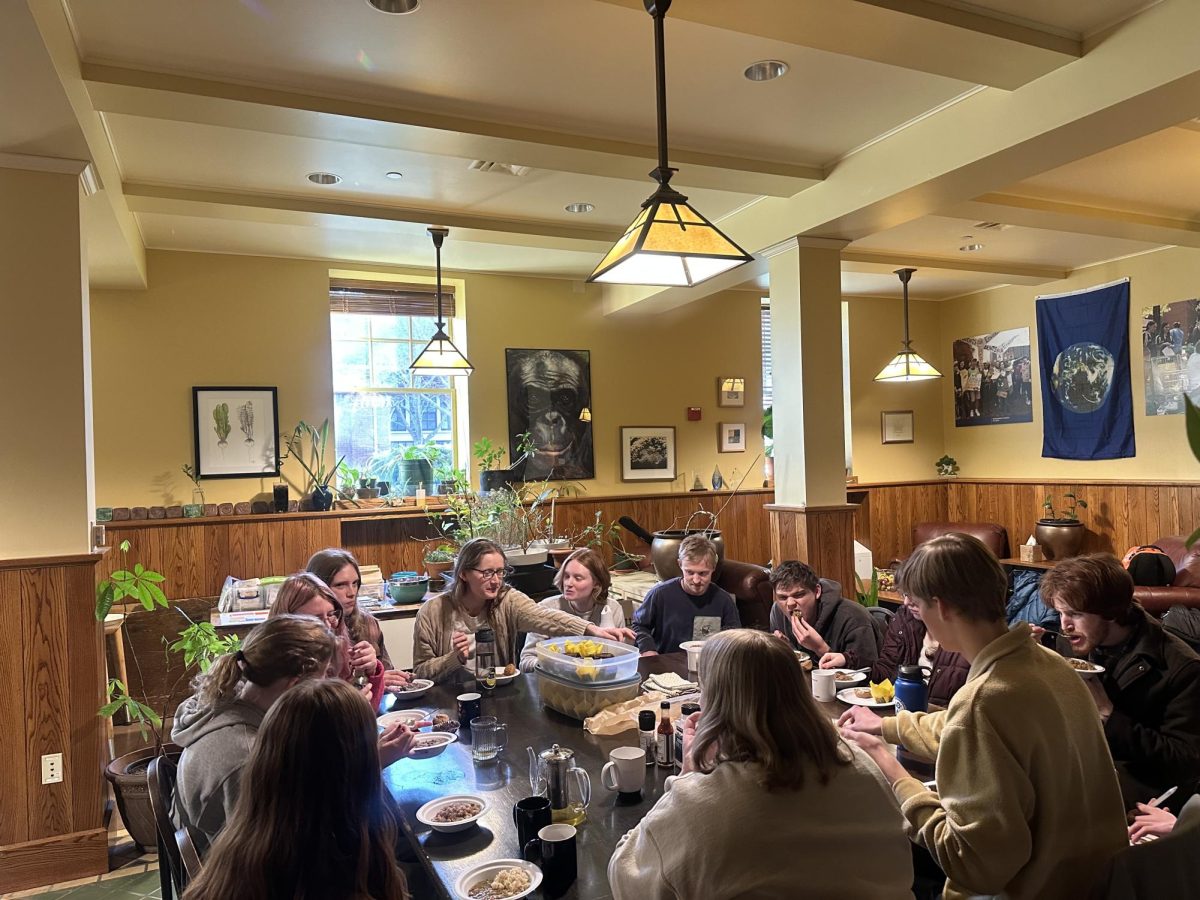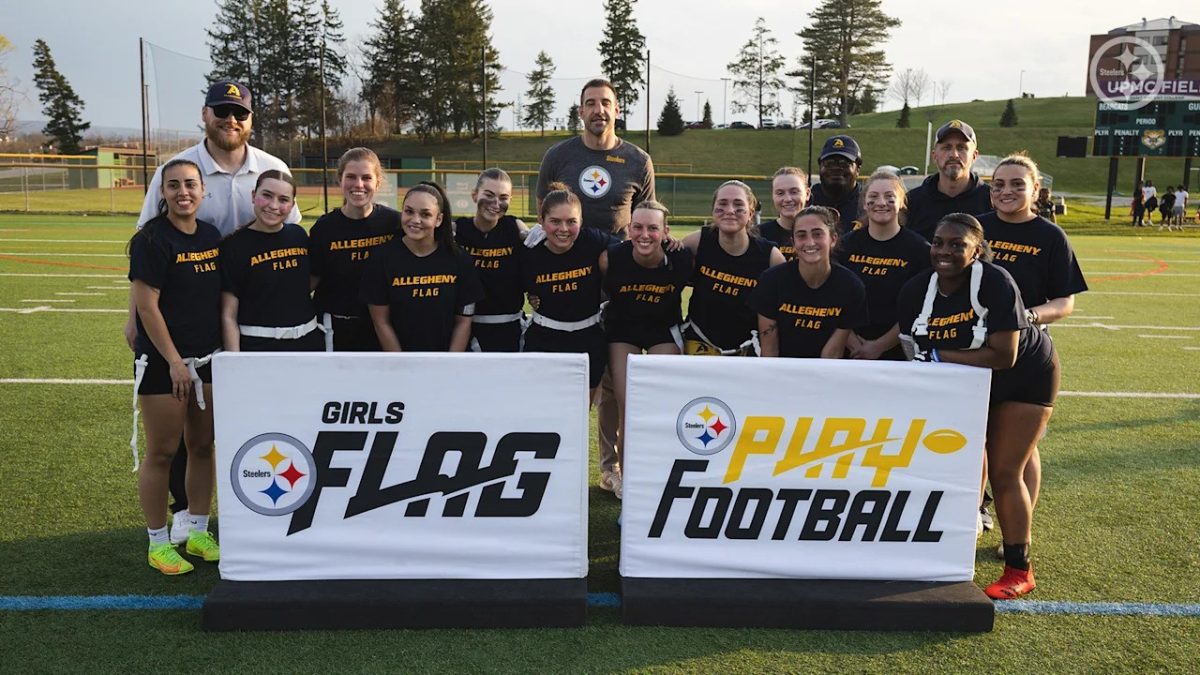By CORTNEY O’BRIEN
Features Editor
obrienc2@allegheny.edu
In the aftermath of another tragedy at Virginia Tech Thursday, when a gunman killed two people, including one police officer, crisis action plans are more important than ever at Allegheny.
The Virginia Tech incident comes five years after student Seung-Hui Cho shot and killed 32 people before committing suicide.
Joseph DiChristina, Dean of Students, stressed the importance of always being prepared for crises like these at Allegheny.
“You can’t look at a situation like Penn State or Virginia Tech or Columbine and say ‘not here,’” he said. “What you have to do is look at that situation and say ‘what if’ and what do we have in our protocols that make sure we’re doing it well and what we need to pay attention to.”
Tiffany Ng, ’14, still feels safe living on campus after considering the Virginia Tech shootings.
“Allegheny’s a lot smaller,” she said. “I walk home at two in the morning and there’s always a security guard sitting in the parking lot.”
DiChristina explained that Allegheny and the city of Meadville have a close connection when it comes to keeping the campus safe.
“We’re not an island, we’re in a city,” he said. “Anytime there’s high level of criminal activity, we turn to them for felony crime. Not like low-level underage student drinking, but for major campus emergencies.”
In DiChristina’s 11 years at Allegheny, the school has never turned to the city for help in a major campus crisis. But, Allegheny has sought assistance with crimes of theft or assault. The school maintains a working relationship with the Meadville Police Department and other local services.
“There are five phases of emergency preparedness: prevention, preparedness, response, recovery and mitigation,” said Allen Clark, EMA director of the Crawford County Office of Emergency Services. “We are working with the college in these five areas all year round.”
Clark explained that OES and Allegheny usually communicate on a weekly basis with e-mail information sharing and the former has a copy of the school’s emergency plan to review at least once each year.
Allegheny also maintains a connection to the city through the use of tabletop discussions. The Office of Safety and Security, Dean of Students, Office of Safety and Security, Physical Plant, Residence Life and other college administrators take part in ‘what if’ situations with the Meadville City Fire, City Police and 911 Center. Begun in 2008 and led by Clark, these exercises are designed to allow Allegheny administrators to talk through a number of dangerous scenarios.
During these workshops, employees have practiced exercises such as severe weather preparation, given the likelihood of tornado warnings in Crawford County. In recent years, for example, one particular exercise involved the imagined situation in which the tabletop group was faced with a thunderstorm warning for Crawford County, which became a tornado watch and finally a tornado warning.
They then had to adapt their discussion to new injections: ‘Meadville Cooperative Day Care on the campus had structural damage due to a tornado and power outage occurred on campus with damage to Crawford Hall including a natural gas rupture.’
“OES only conducts exercises with realistic scenarios,” Clark said. “Sure, we could have an airplane crash into the college or have an earthquake that levels the college, but we practice realistic scenarios such as weather and hazardous materials and other scenarios based on our hazard vulnerability analysis.”
He considers these discussions to be highly effective for emergency preparation.
“It’s one thing to say we have a plan but another if it works during an emergency,” Clark said. “We say it’s the planning process that is more important than the plan. Having all the key leaders from the college and public safety officials in one room where we work out the details in a low stressful situation rather than meeting for the first time at 3 a.m. in the morning exchanging business cards during a real emergency.”
Jeff Schneider, the director of Allegheny’s Office of Safety and Security, explained that although the faculty has never fully practiced the procedures written in the emergency handbook, the tabletop exercises they have with the city are still effective preparations.
“They can be a good learning experience,” Schneider said. “It is a good time to make errors so that you can learn from those and build upon those.”
B.J. Nelson, ’14, however, does not agree that these discussions are an effective approach to emergency preparation.
“The only way to practice is to actually do them. We pay a lot to go here and if they have plans they should have them practiced thoroughly. They could do them over the summer or during winter break when there’s not a lot of students on campus.”
Some of Nelson’s concern with the Allegheny’s safety stemmed from the second Virginia Tech shootings.
“To see it happen twice is pretty alarming,” he said. “It would be encouraging to see more officers in Meadville. I see the campus security a lot, but I feel like they’re Chihuahua on a leash.”
For potential crises such as Virginia Tech, Allegheny first relies on the guidance of the emergency planbook. For this particular situation, the planbook has a section entitled “Hostile situation,” which explains that campus officers should first contain the area and then reach out to the city for assistance.
Clark explained how the city would then respond to the campus’s outreach for help.
“We do not wait until after the disaster occurs to come in and help, but rather pre-stage equipment or put emergency personnel on stand-by to assist so that we are ready to hit the ground running as soon as the emergency has been contained and it is safe for us to do so,” he said.
Allegheny also receives outside help in situations regarding sexual assault. DiChristina explained that a trainer from Pittsburgh, who serves as the school’s employment law attorney, comes annually to Allegheny to give an hour to two hour workshop on the issue.
“I think we’re doing a good job because all our employees are trained on and given guidance to and instructions about how to handle issues of sexual violence on our college campus – and I’m proud of that,” he said.
Were a crisis to strike campus, Allegheny’s campus communications would send out press releases via email and for emergencies such as severe weather, the office would send e2campus notifications to students.
Because most campus incidents do not reach the city level, DiChristina stressed the presence of Allegheny’s campus security, hoping to remind students that this is a resource available 24/7, 365 days a year.









